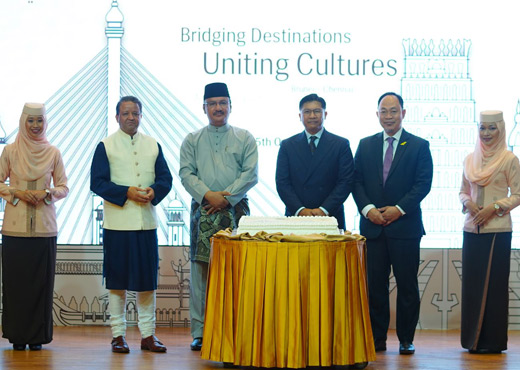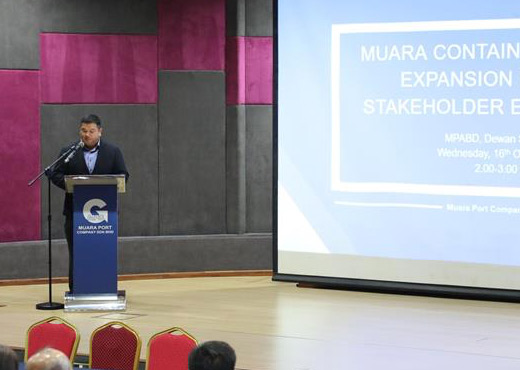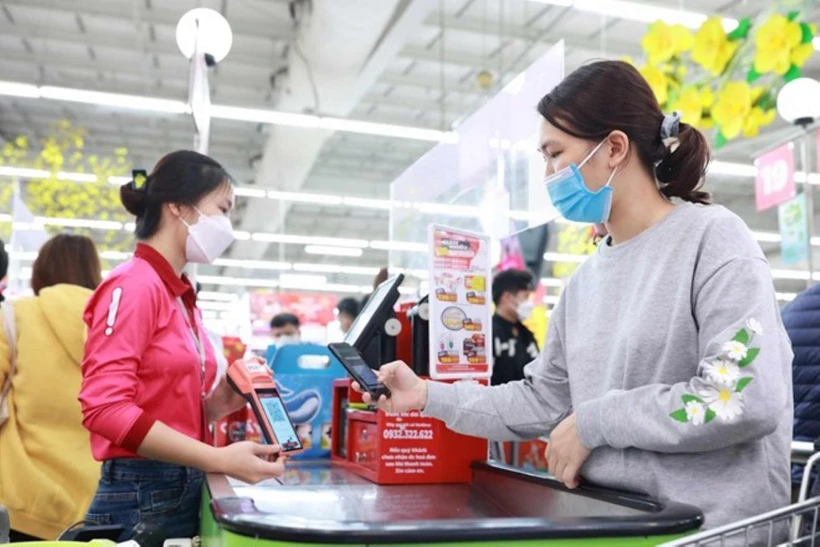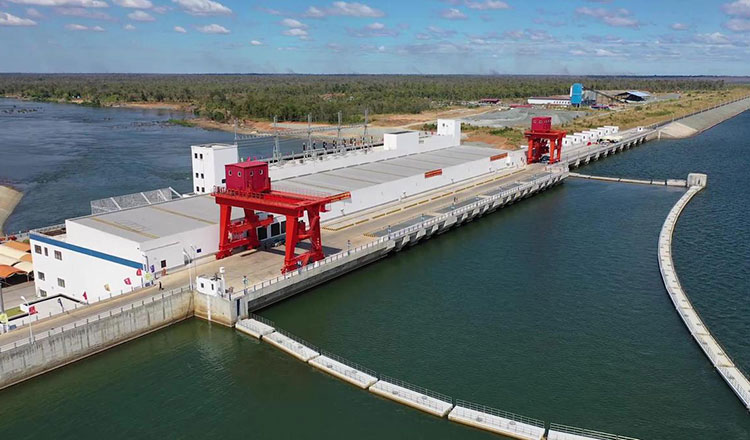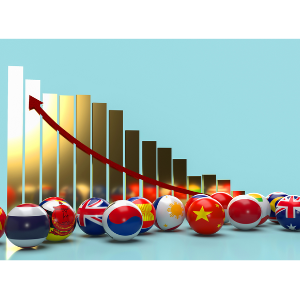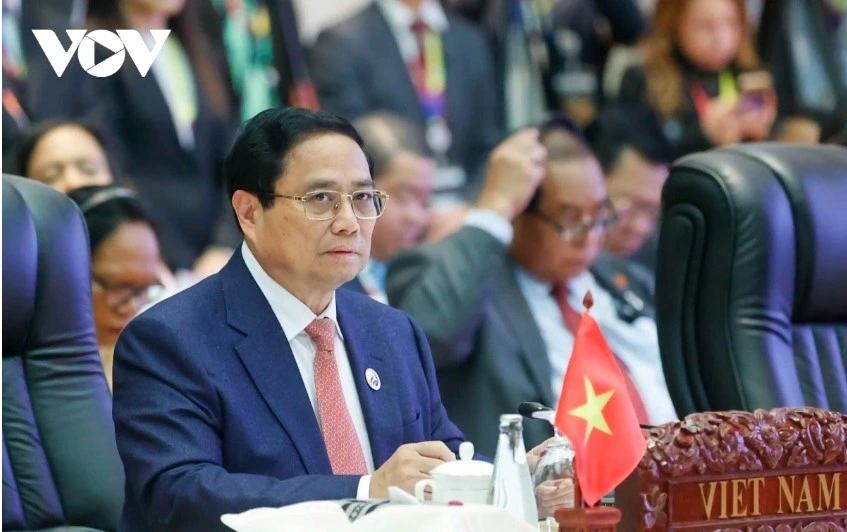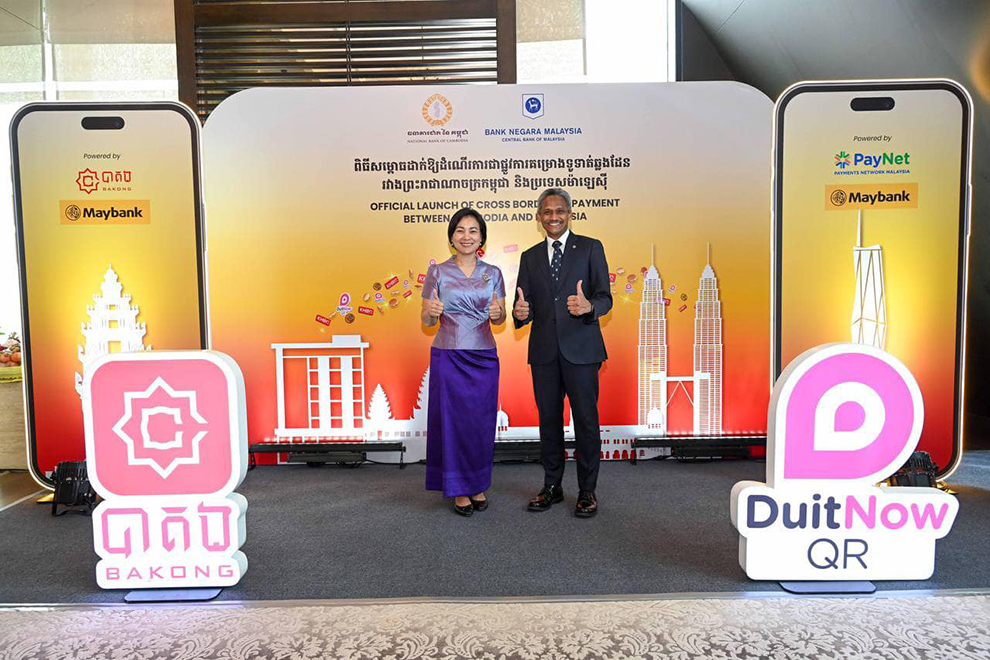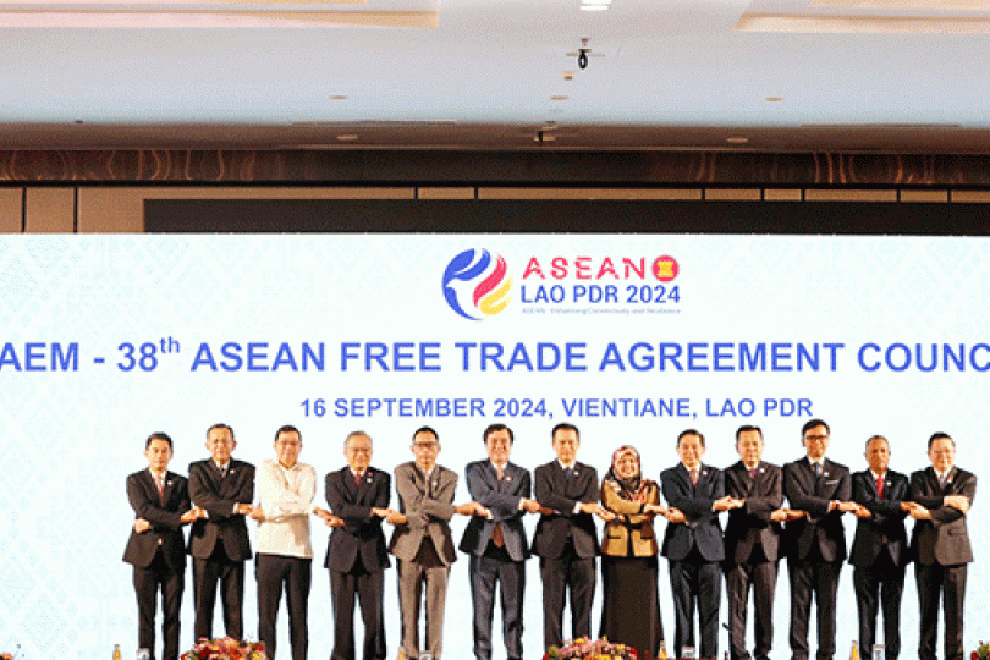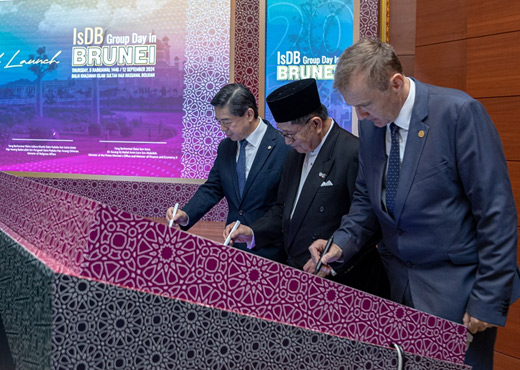VOV.VN - Vietnam appreciates the importance of the ASEAN-US Comprehensive Strategic Partnership, expecting the United States to go ahead with deep and active participation in the region.
Prime Minister Pham Minh Chinh led a Vietnamese delegation to attend the 12th ASEAN-US Summit in Vientiane, Laos, on October 11.
Representing the US President at the event, US Secretary of State Anthony Blinken affirmed that ASEAN holds a central position in the vision of an open, secure, and prosperous Indo-Pacific region, highly appreciating the importance of the ASEAN-US Comprehensive Strategic Partnership as it promotes connectivity of economic co-operation opportunities, innovative technology, creates more jobs, and brings a better life to one billion people of both sides.
Secretary Blinken emphasized that the US will continue to work alongside and support ASEAN in preventing epidemics; upgrading the regional power grid; combating cybercrime and online fraud; promoting safe, secure, and reliable artificial intelligence; as well as intensifying cultural exchanges. He also expressed his delight that the Young Southeast Asian Leaders Initiative, after 10 years of establishment, continues to grow with an increasing number of members.
The summit praised the US for making strong and long-term commitment to the bloc and the region over recent times, supporting ASEAN's centrality, actively participating in constructive dialogue, co-operation, and building trust in the region. It therefore welcomed the US continued active support in building the community, integrating, connecting, developing the sub-region, narrowing the development gap, and responding to challenges, including through the Mekong-US Partnership (MUSP) framework.
The countries hailed the positive progress made in co-operation over recent times. The ASEAN-US Plan of Action for the 2021 to 2025 period has been actively carried out, fulfilling 98.37%. In 2023, the US represented ASEAN's largest investment partner, with more than 6,200 US businesses operating in the regional grouping, with a total foreign direct investment of US$74.3 billion. It was also the bloc’s second largest trading partner with a total two-way trade turnover of US$395.9 billion.
Economic initiatives such as the ASEAN-US Trade and Investment Framework Agreement (TIFA) and the US-ASEAN Expanded Economic Engagement (E3) Initiative provide a basis for augmenting linkages in areas such as the digital economy, the development of small and medium enterprises (SMEs), and trade facilitation.
Moving forward, the two sides agreed to continue ramping up substantive and effective ties, on a par with the level of the Comprehensive Strategic Partnership, prioritizing the promotion of trade, investment, science and technology, innovation, digital transformation, artificial intelligence (AI) governance, healthcare, energy, the environment, and climate change response. This is as a contribution to the rapid, sustainable, and long-term development of the region as a whole.
At the conference, the Vietnamese side stated its high appreciation for the importance of the ASEAN-US Comprehensive Strategic Partnership, expecting the US to continue to deeply and actively participate in the region, make a responsible and long-term commitment to ASEAN, and supporting the regional bloc in building the community. This is along with promoting its centrality in shaping an open, inclusive, and transparent regional structure that upholds international law.
Outlining orientations for the future development of the relationship, the nation proposed that both sides step up collaboration in a bid to create a prosperous and sustainable future. Accordingly, economic-trade-investment co-operation will be the focus and driving force, which needs to be promoted in an effective, harmonious, and sustainable fashion, thereby intensifying market opening for exports and being ready to welcome more investors from the US.
It can be seen as necessary to beef up co-operation in responding to climate change and enhancing resilience to natural disasters and catastrophes.
The country therefore welcomes the US for continuing to support the development of the Mekong sub-region through the Mekong-US Partnership framework, including increasing resilience to climate change in Vietnam's Mekong Delta.
Moreover, the country has suggested exerting greater efforts and allocating appropriate resources to make science, technology, and innovation co-operation a new pillar in the US-ASEAN relationship, thereby opening up new development space, and creating breakthroughs to promote the rapid and sustainable development of the Comprehensive Strategic Partnership between the two sides. Accordingly, it welcomes further opportunities with US corporations and technology firms, especially in the fields of semiconductor industry and AI.
The country has proposed that ASEAN and the US work to strengthen co-ordination and contribute more to peace, security, and stability in the region. It also called on the US to continue supporting the bloc’s common stance on the East Sea, working together to ensure peace, security, and stability in the region, including the East Sea, and backing efforts to swiftly achieve an effective and substantive Code of Conduct in the East Sea (COC) in line with international law, especially the 1982 UNCLOS. This will contribute to building the East Sea into a sea of peace, stability, co-operation, and sustainable development.
Concluding the event, the leaders adopted the ASEAN-US Leaders' Statement on promoting safe, secure, and trustworthy AI.
Source : VOV

